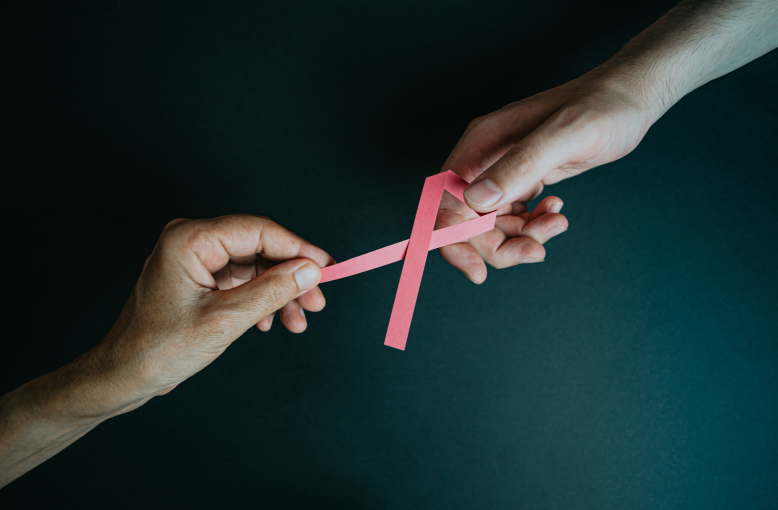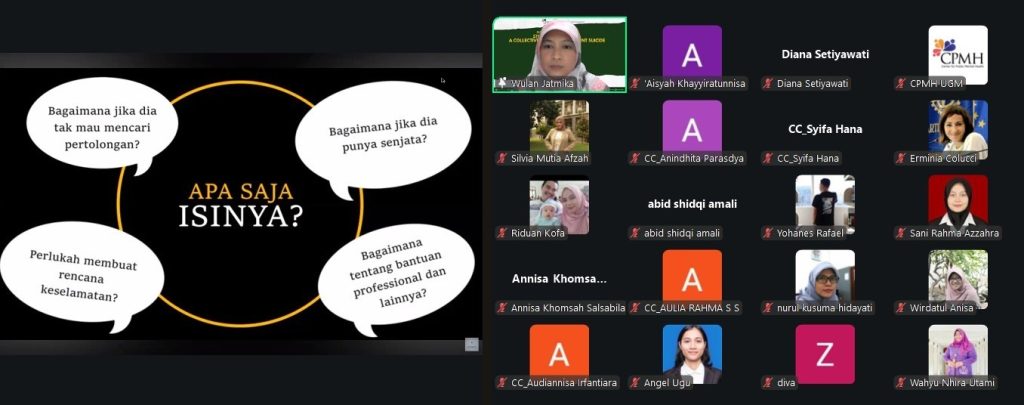
As part of the Pre-International Course Series of the International Course on Public Mental Health, the Center for Public Mental Health (CPMH) Faculty of Psychology Universitas Gadjah Mada (UGM) invited two experts to highlight the importance of understanding suicide not merely as an individual issue, but also one that is deeply connected to cultural, social, and systemic factors. The event, held online on Friday (Sept 19), was attended by dozens of participants from various backgrounds.
This activity served as a form of psychoeducation aimed at increasing public literacy about the phenomenon of suicide. Carrying the theme “Stronger Together: A Collective Journey to Prevent Suicide”, CPMH hopes participants will better understand approaches to suicide prevention and intervention through collective systems.
The speakers included Prof. Erminia Colucci, Ph.D., from Middlesex University London, who presented her material and introduced her book Suicide and Culture 2.0: Understanding the Context. She emphasized that suicide should not be seen only as an individual problem, but also as one strongly influenced by culture, social norms, and the systems surrounding it.
“Suicide is one of the 20 leading causes of death worldwide, yet it remains a taboo in many societies,” said Colucci.
She added, “Cultural factors, systems of meaning and belief must not be overlooked in suicide research and prevention, as they strongly shape how people deal with suicide—both in their own lives and in the lives of others.”

Meanwhile, Diana Setiyawati, S.Psi., MHSc., Ph.D., Psikolog, emphasized the importance of strengthening both internal and external support systems in Indonesia’s suicide prevention efforts. She highlighted that post-crisis support should focus on instilling hope, building self-confidence, and taking into account cultural sensitivities as well as religious values.
“The most important thing is instilling hope. We need to help them feel confident, equipped with coping skills, and supported by both family and community,” she explained.
Diana also reminded that stigma can worsen suffering. She cited Islamic-based approaches that emphasize compassion and forgiveness, and drew attention to the vulnerabilities of young people—due to social media, identity crises, and even toxic positivity from their environment.
“Young people really want to be heard. Don’t rush to tell them to ‘just be grateful,’ because that can make them feel even more guilty about their emotions,” she stressed.
Both speakers underlined that suicide prevention is not solely an individual responsibility but a collective one. By strengthening culturally sensitive and empathetic mental health systems, it is hoped that more lives can be saved.
Writer: Fadia Hayu Godwina
Editor: Erna Tri Nofiyana
